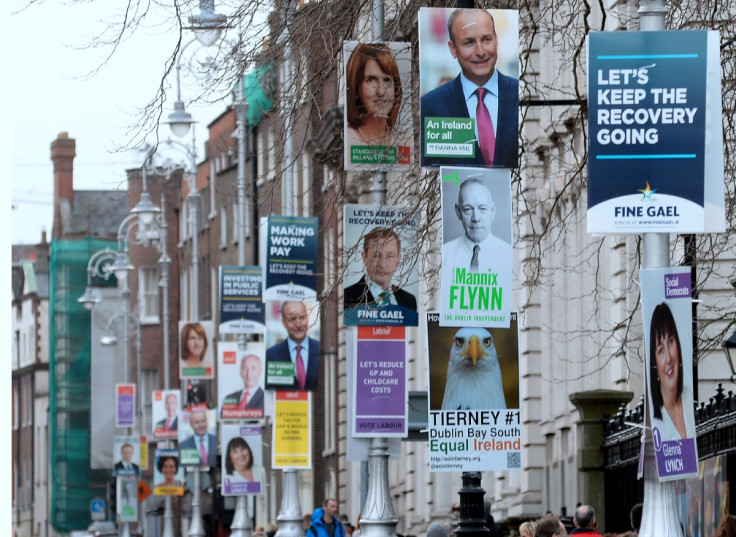Ireland election: Fine Gael and Labour ready for losses as anti-austerity mood sweeps voters

Voters head to the polls in Ireland today (26 February) as the country faces one of the most unpredictable elections in recent times. More than 3 million people are eligible to vote, with many predicted to shun mainstream parties in the wake of austerity in favour of smaller factions and independents.
The outgoing government – a coalition between Ireland's largest party, Fine Gael, and the Labour Party – is predicted to lose its majority share as it struggles against a message of anti-austerity. While unemployment in Ireland is at a seven-year low of 8.9%, Prime Minister Enda Kenny and Deputy Prime Minister Joan Burton have struggled to convince voters who have felt worse off during their five-year austerity programme.
Ireland's 2008 economic crash under a Fianna Fail-led government saw the country receive a bailout by the IMF in 2010. While growth has returned, the population has since seen tax increases and cuts in social housing and welfare. There has also been the introduction of unpopular water charges.
Centre-right Fine Gael is expected to retain its position as Ireland's largest party, but centre-left Labour is predicted to suffer significant losses against anti-austerity candidates. The battle for the 158-seat parliament (Dail) is being challenged by 13 other parties, including the largest opposition party, Fianna Fail, led by Micheal Martin, and Sinn Fein, led by Gerry Adams.
Polls suggest Ireland will be just one of the latest Eurozone countries to face political uncertainty in the face of anger against austerity.
One outcome could see the incumbent parties join with independents, who are expected to be elected in unprecedented numbers. Another would see a hitherto unimaginable coalition between Ireland's staunch rivals, Fine Gael and Fianna Fail. The two parties, who have dominated Irish politics since their emergence after the country's bloody civil almost a century ago, have supposedly ruled this out.
Should no government be formed, another election could be called.
The polls open from 7am to 10pm. The outcome will likely only be known on Monday, with the count expected to take all weekend, but exit polls published on the morning of 27 February will give the first indication of what losses Fine Gael and Labour have sustained.
TDs (members of Dail) are elected on a single transferable vote (STV) system, in which candidates are required to reach a quota before surplus votes are distributed to other candidates.
© Copyright IBTimes 2025. All rights reserved.






















